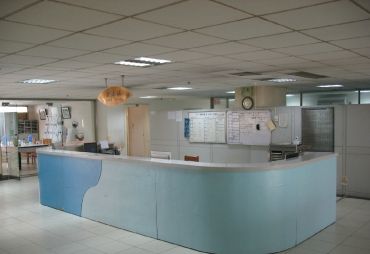(单词翻译:单击)
听力文本
This is Scientific American — 60-Second Science. I'm Christopher Intagliata.
Hospitals can be extremely noisy places.
In fact, quietness is one of the lowest-rated categories on national surveys of hospital quality. And: "The situation is getting worse, rather than getting better."
Ilene Busch-Vishniac, an acoustician and president of BeoGrin Consulting. She talked about hospital noise at a session during the Acoustical Society of America meeting this week in New Orleans.
Busch-Vishniac says she and her colleagues have tested speech intelligibility in hospital halls and nurse stations... and they found poor or marginal scores across the board.
"In fact the speech communication and noise problem is so bad that most hospitals in the U.S. have eliminated the ability to phone in pharmaceutical orders—you now must deliver them in writing, because they were getting too many errors."

So how to calm the cacophony? She suggests more closed doors, to give patients peace and quiet. Or instituting or continuing so-called "quiet times," when nurses interact less with patients, they turn lights down, and keep voices low. And installing more acoustic absorbing tiles.
Finally: she recommends fewer audio alarms. "Now that alarms frequently are gathered centrally at nursing stations, it seems less necessary to have them also ringing at the bedside of patients. And if we could turn those off we could remove some of the most distracting sounds from the environment."
The idea wouldn't be to eliminate all bedside alarms. But to keep only the most essential ones in audio form. And in dampening the decibels, give patients what they really need: rest.
Thanks for listening for Scientific American — 60-Second Science. I'm Christopher Intagliata.
参考译文
这里是科学美国人——60秒科学。我是克里斯托弗·因塔利亚塔。
医院可以是极为嘈杂的地方。(医院里的噪音)
实际上,在全美医院质量调查中,“安静”是评分最低的类别之一。而且:“情况不但没有好转,还越来越严重。”
声学家、BeoGrin咨询公司主席艾琳·布希·维尼亚克说道。本周,她在新奥尔良举行的美国声学学会会议上谈到了医院噪音问题。
布希·维尼亚克表示,她和同事对医院大厅和护士站的语言可懂度进行了测试,他们发现,这些地方的得分普遍偏低或为边缘分数。
“实际上,言语沟通和噪音问题非常严重,以致于美国大多数医院已经取消了电话下单订药,现在必须提供书面订单,因为电话订单的错误太多了。”
那要如何减少那些刺耳的噪音呢?布希·维尼亚克建议要多关门,给患者营造安宁的环境。或者实行或维持所谓的“安静时间”,即护士减少与患者的互动,把灯调暗、小声说话。同时安装更多的吸音瓷砖。
最后:她建议减少音频警报器的使用。“警报器往往集中在护士站,似乎没多大必要让它在病床边也响。如果能把这些警报器关掉,我们就能去除环境中最令人分心的声音。”
这个想法并不是要撤销所有病床边的警报器。而是只让最重要的警报器发出声音。而且要降低分贝,给患者真正需要的:休息。
谢谢大家收听科学美国人——60秒科学。我是克里斯托弗·因塔利亚塔。
译文为可可英语翻译,未经授权请勿转载!
重点讲解
重点讲解:
1. rather than 而非;胜于;而不是;
例句:He said he stood for continuity rather than change.
他说他支持保持连续性,反对变更。
2. across the board 影响全体地;全面地;
例句:General household goods and food prices have definitely gone up. I'm spending a lot more across the board.
日常用品和食物价格肯定上涨了,总体来说我的支出多了很多。
3. turn down 关小;调低;
例句:She could not bear the relentless music and turned down the volume.
她受不了没完没了的音乐,就把音量调小了。
4. turn off 关上;关掉;截断,切断(…的供应);
例句:I have to get up and turn off the radio.
我必须起床关上收音机。


